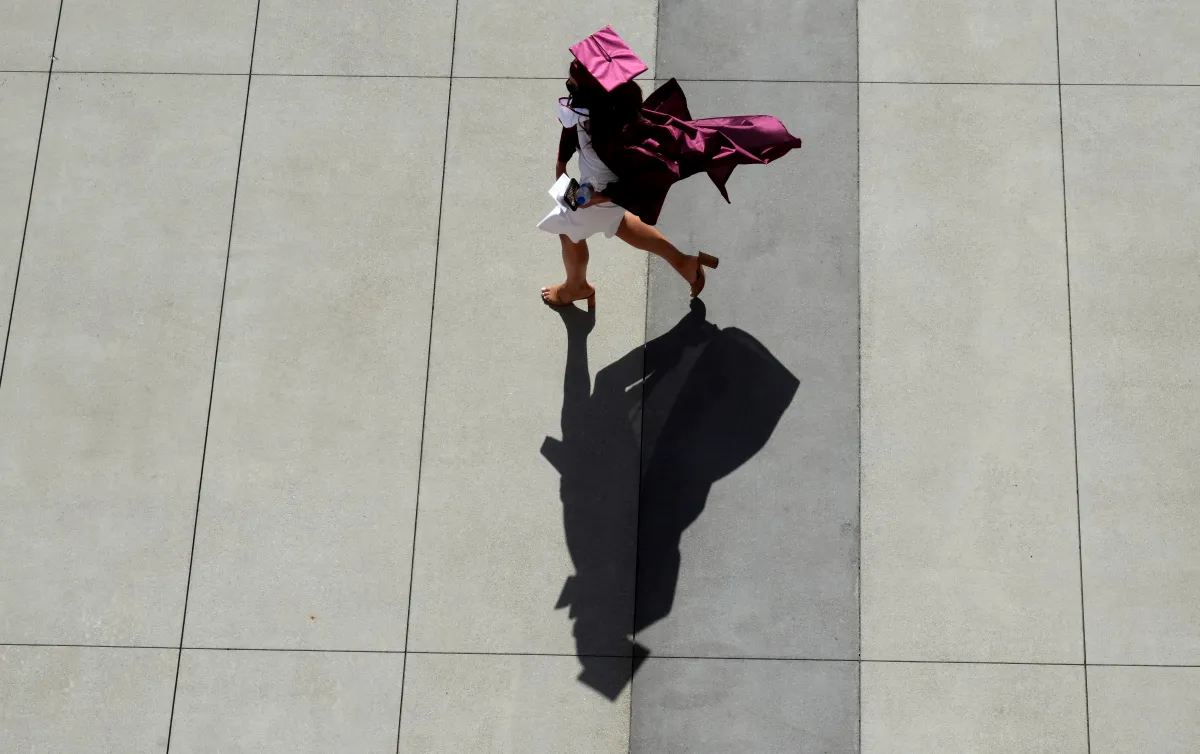The Washington Monthly magazine today is releasing its annual college guide and rankings, a socially conscious alternative to the U.S. News & World Report rankings, which dozens of colleges have stopped cooperating with over the past year, many citing concerns over U.S. News’s elite-fixated metrics. Indeed, under pressure, U.S. News has announced tweaks to its metrics that will move its new rankings, out next month, closer to the Washington Monthly’s.
Instead of rewarding schools for their prestige, wealth, and exclusivity, as U.S. News traditionally does, the Monthly gives points to those that help nonwealthy students earn remunerative degrees, encourage students to vote and serve their country, and produce the scholars and scholarship that drive economic growth and human betterment.
These different criteria lead to quite different results:
- The Monthly‘s top 30 list of national universities includes 13 state schools while only six public universities make it onto U.S. News‘s top 30.
- Florida International University, #19 on the Monthly’s list, was #151 on U.S. News’s.
- California State University, Fresno, #26 on the Monthly’s rankings—ahead of Dartmouth, Brown, and the University of Chicago—is #250 on U.S. News’s.
Washington Monthly’s College Guide also ranks master’s universities, liberal arts and bachelor’s colleges, and America’s “Best Bang for the Buck” colleges—a unique list of schools that help moderate to low-income students attain marketable degrees at affordable prices.
- Governors State University in Illinois, #2 on the Monthly’s Best Bang for the Buck Midwest Colleges list, is #127 on U.S. News’s Regional Universities Midwest ranking.
- CUNY Lehman College, #5 on the Monthly’s Best Bang for the Buck Northeast Colleges ranking, is #81 on U.S. News’s Regional Universities North list.
- Grambling State University, a Louisiana HBCU, is #10 on the Monthly’s Best Bang for the Buck Southern Colleges ranking but #99 among U.S. News’s Southern Universities.
The Washington Monthly’s rankings highlight outcomes that are useful and relevant to students, the majority of whom are neither rich nor applying to highly selective schools. Rather than relying on easily-gamed proprietary surveys of colleges, as U.S. News does, the Monthly uses publicly available data to track whether institutions are committed to enrolling students of modest backgrounds, getting them through college, and helping them into upwardly mobile careers.
U.S. News is the Past, The Washington Monthly is the Future
The Washington Monthly’s approach is increasingly being seen as the future of college rankings. “It’s changed the conversation,” says U.S. Under Secretary of Education James Kvaal, “and it’s shown college leaders that there is more than one set of values that they can use to guide their institutions.” Last fall and winter, more than 50 law and medical schools, including Yale and Harvard, announced that they would no longer provide data to U.S. News. Then several well-regarded institutions, including Bard College and Columbia University, declared they would no longer participate in U.S. News’s undergraduate ranking, criticizing its pinched focus on test scores, endowment sizes, and other measures that privilege the children of the elite over all other students. “It’s time to stop worshiping at the false altar of U.S. News and World Report,” said Education Secretary Miguel Cardona in a speech this past March. Two months later, U.S. News, bowing to pressure, announced changes to its ranking formula, including “[i]ncreased weighting on a schools’ [sic] success in graduating students from different backgrounds.”
“When we launched the Washington Monthly rankings in 2005, we were a lonely voice calling for a higher education system that champions the majority of students, not the privileged minority,” says the Monthly’s editor in chief, Paul Glastris. “I’m glad to see the world slowly moving in that direction.”
The pace of change, however, is still dangerously slow, says Glastris. As the legendary journalist James Fallows writes in the Monthly‘s latest issue, the exodus from U.S. News has coincided with a wider erosion of public confidence in universities. This disillusionment, fanned by right-wing lawmakers hoping to mobilize their noncollege-educated base, underscores the urgent need for the kind of egalitarian reform of higher education that the Monthly has been calling for over nearly two decades.
Diversity Has a Future, the Washington Monthly Predicts
Despite this summer’s Supreme Court decision gutting affirmative action, new reporting by the Washington Monthly reveals that colleges can protect and expand diversity on their campuses.
- Washington Monthly editor Will Norris reports on how U.S. military academies like West Point diversify their admissions without sacrificing high standards—or running afoul of the Supreme Court—and how civilian colleges can do the same.
- Universities say they care about diversity on campus, but they seldom reveal how diverse their boards of trustees are. The Washington Monthly discloses the numbers for them.
- Jamaal Abdul-Alim writes about an effort to flip the admissions process by encouraging colleges to apply to students, rather than the other way around.
Also in the issue, Anne Kim casts a jaundiced eye on the growing industry for professional certificates in tech, which companies like Google promise will lead to high-paying jobs. (The reality, Kim finds, is that the programs are of doubtful quality and little use in the job market.) And historian Jonathan Zimmerman charts the history of American universities’ commitment to serving the public good by providing an affordable education to all—a struggle whose pitfalls and successes offer lessons for us today.



